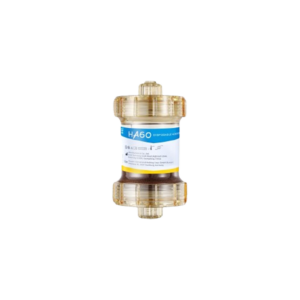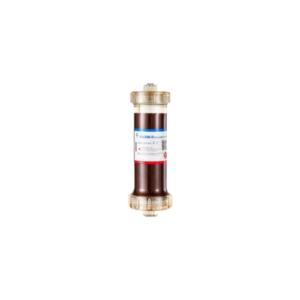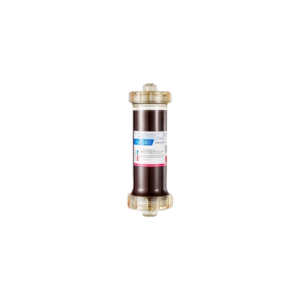BS80 Technical Properties
The BS80 is a medical device with specific technical properties that make it suitable for its intended use. Some of these properties include:
- Adsorbent Volume: The BS80 has an adsorbent volume of 330 ml, allowing it to effectively absorb substances. This large adsorbent volume is particularly beneficial in medical applications where the removal of toxins or impurities is necessary.
- Biocompatibility: The BS80 has been tested for biocompatibility as required in ISO 10993, ensuring that it is safe for use in medical applications. This testing involves evaluating the device’s interaction with biological systems to ensure that it does not cause any adverse reactions or harm to the patient.
- Adsorbent Material: The adsorbent material used in the BS80 is polystyrene divinylbenzene anion exchange resin, which has excellent adsorption properties. This material is specifically chosen for its ability to selectively remove certain substances from Blood, making it ideal for medical applications where targeted purification is necessary.
- Housing Material: The housing of the BS80 is made of polypropylene, a durable and chemically resistant material. This choice of material ensures that the device can withstand the rigors of medical procedures and maintain its structural integrity even when exposed to various chemicals or solvents.
- Sterilization Method: The BS80 is sterilized using moist heat sterilization, a reliable and effective method for ensuring the device is free from harmful microorganisms. This sterilization process involves subjecting the device to high temperatures and steam, effectively killing any bacteria, viruses, or fungi that may be present on its surface.
- Unit Package Dimensions: The BS80 is packaged in a unit with dimensions of 280mm (length) x 105mm (width) x 108mm (height), making it compact and easy to handle. This compact packaging not only ensures convenient storage and transportation but also allows healthcare professionals to easily access and use the device during medical procedures.
In addition to these technical properties, the BS80 also incorporates advanced features such as a user-friendly interface, customizable settings, and real-time monitoring capabilities. These features enhance the device’s usability and effectiveness, allowing healthcare professionals to efficiently perform their tasks and provide optimal patient care.
Clinical Benefits
The BS80 offers several clinical benefits due to its unique properties and functionality. Some of the key clinical benefits of the BS80 include:
- Bilirubin and Bile Acid Absorption: The BS80 is designed to effectively absorb bilirubin and bile acid, which are often elevated in patients with liver disease. By removing these substances from the body, the BS80 can help improve the patient’s condition.
- Ammonia Removal: Excess ammonia in the body can be toxic, especially in patients with liver disease. The BS80 is capable of removing ammonia, helping to maintain safe levels in the patient’s bloodstream.
- Removal of Inflammatory Mediators: Inflammatory mediators play a role in the progression of liver disease and can contribute to complications. The BS80 can help remove these mediators, reducing inflammation and potentially improving the patient’s outcome.
- Enhanced Liver Function: The unique properties of the BS80 allow it to support and enhance liver function. By assisting in the removal of toxins and metabolic waste products, the BS80 promotes optimal liver performance and can help improve overall liver health.
- Improved Blood Chemistry: The BS80’s ability to absorb bilirubin, bile acids, and ammonia can lead to improvements in blood chemistry. Lower levels of these substances can help restore normal blood parameters, such as liver enzymes, albumin, and coagulation factors, which are often deranged in liver disease.
- Reduced Complications: By targeting key factors involved in the progression of liver disease, the BS80 can help reduce the risk of complications. This includes a lower likelihood of developing hepatic encephalopathy, ascites, and hepatorenal syndrome, which are serious complications associated with advanced liver disease.
- Potential for Liver Regeneration: The BS80’s ability to remove harmful substances and reduce inflammation may create an environment conducive to liver regeneration. This could potentially lead to the restoration of liver function and improved long-term outcomes for patients with liver disease.
- Cholestasis: Cholestasis is a condition characterized by the impairment of bile flow from the liver to the small intestine. This can lead to the accumulation of bile acids and bilirubin in the liver, causing liver damage. The BS80 can be used to treat cholestasis by assisting in the removal of bile acids and bilirubin, thereby improving liver function and reducing the risk of complications.
- Hepatitis: Hepatitis is inflammation of the liver, usually caused by a viral infection. The BS80 can be utilized in the management of hepatitis by helping to eliminate viral particles and toxins from the bloodstream, reducing the viral load and alleviating symptoms.
- Alcoholic Liver Disease: Excessive alcohol consumption can lead to liver damage and dysfunction. The BS80 can aid in the treatment of alcoholic liver disease by removing alcohol metabolites and toxins from the blood, promoting liver regeneration, and improving overall liver function.
- Drug-induced Liver Injury: Certain medications and toxins can cause liver damage, leading to drug-induced liver injury. The BS80 can be employed to assist in the removal of these harmful substances from the bloodstream, reducing the burden on the liver and facilitating the recovery process.
- Wilson’s Disease: Wilson’s disease is a rare genetic disorder that results in the accumulation of copper in various organs, including the liver. The BS80 can play a crucial role in the treatment of Wilson’s disease by aiding in the removal of excess copper from the blood, preventing its deposition in the liver, and mitigating the associated complications.
- Primary Biliary Cholangitis: Primary biliary cholangitis is a chronic autoimmune disease that affects the bile ducts in the liver. The BS80 can be utilized as a therapeutic intervention for primary biliary cholangitis by assisting in the removal of bile acids and toxins, reducing inflammation, and improving liver function.
- Acute Liver Failure: Acute liver failure is a life-threatening condition characterized by the rapid loss of liver function. The BS80 can be employed as a supportive treatment for acute liver failure by removing toxins and substances that contribute to liver damage, providing temporary relief and allowing time for the liver to regenerate.
In summary, the BS80 is a versatile medical device that can be used in various clinical scenarios to aid in the management of liver diseases and related conditions. Its ability to remove toxins, substances, and metabolic byproducts from the bloodstream makes it a valuable tool in improving liver function, alleviating symptoms, and promoting overall patient well-being.





Reviews
There are no reviews yet.